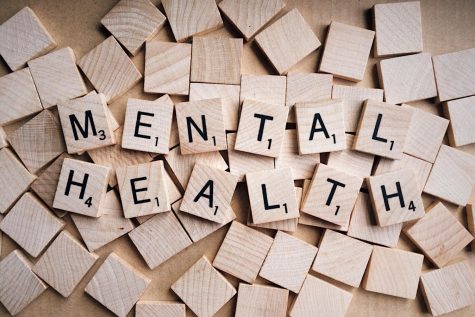Listen
It’s one of the first things you learn in elementary school.
Before addition, before proper nouns, and before memorizing the Pledge of Allegiance, the first lesson you were taught was how to listen.
Throughout school, you constantly hear teachers telling you and your classmates to quiet down, stop talking, and listen.
Instead of letting that advice go in one ear and out the other, what if you actually applied it to your everyday life?
Listening isn’t only necessary for the classroom, and it certainly isn’t a skill you can throw away after graduation.
The value of listening can be applied to success in academics, sports, friendships, and relationships.
The effects of listening in the classroom are enormous. Not only does listening to your instructor keep you organized and aware, listening to your classmates is an important tool as well.
When you hear other students’ questions, you may begin to grasp a concept better than if you had asked the question yourself. Listening to class discussions also allows you to see things from a perspective that can completely change or verify your own personal stance.
Even if you find the classroom to be a stuffy, boring environment, listening is a valuable skill in other places as well.
When you can’t make contact with the ball or can’t beat your record in the swimming pool, listening can come in handy.
Not only can you listen to your coaches and teammates about their advice, you also need to listen to your body.
Being able to identify how your physical body is feeling and what your emotional needs are is important when trying to grow and evolve.
According to Psychology Today, mindfulness is a big factor in understanding what you need in order to thrive.
Mindfulness is “the practice of paying careful attention to what is happening in the present moment.”
Not only is mindfulness considered the awareness of your own thoughts and feelings (which is also commonly known as introspection), but it’s also the consciousness of factors outside the body like sights and sound.
Being aware of your environment cannot only effect athletic ability, but it can also keep you safe.
When you know where your exits are (a helpful tip from Ms. Diane Hunt, psychology teacher), who and how many people are near you, and the overall feeling of your environment, you will be more prepared for any situation that comes your way.
Besides the physical and educational benefits of listening, there are many social factors that are influenced by your ability to listen as well.
You hear it from everyone involved in a successful, long-lasting relationship.
Communication is the key to a happy relationship, romantic or otherwise.
At the end of the day, people just want to be heard. When you can effectively listen to your partner or friend, your relationship will stay strong.
Listening is not the same thing as hearing.
The next time you have a conversation, truly focus on what the other person is saying and obtain it.
When you interact with others to actually listen not only to respond, your conversation will become more purposeful.
While it’s always an option to go through life with one ear closed, being an avid listener is so much more meaningful.
When you remain aware and search for opportunities to listen to those around you, you’ll learn things you never even knew you needed.

Birthday: Aug. 2, 2001
Hobbies/Interests: NHS, drama club, Freshman Mentors.
Favorite Quote: "Find out who you are and do it on purpose."...







trevor keller • Mar 20, 2019 at 10:28 am
i agree <3